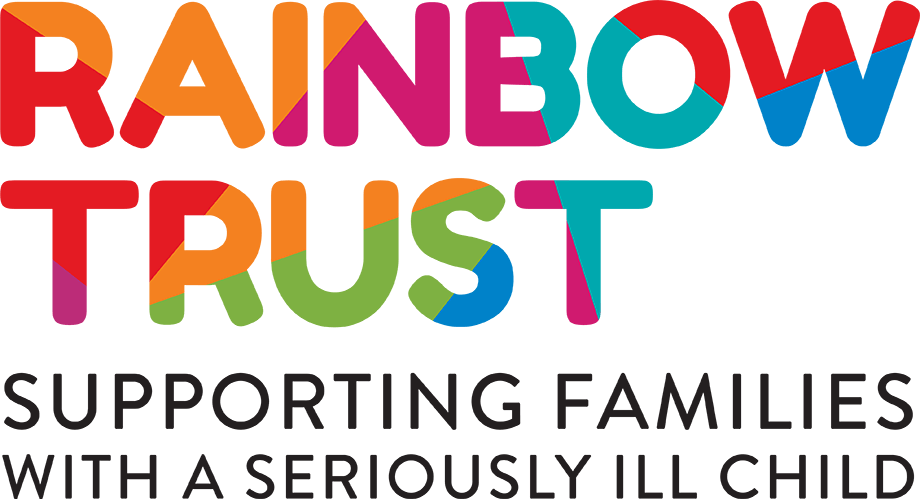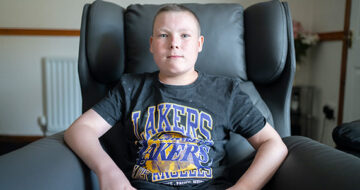Date published: 14 May 2025 by Sophie Wichman
Rainbow Trust Children’s Charity published two briefings on Wednesday 14 May, highlighting the levels of isolation and loneliness among families who have a child with a life-threatening or terminal illness.
Loneliness and isolation in parents and carers of seriously ill children explores how parents and carers can feel isolated at work and within their social networks.
The accompanying briefing, Loneliness and isolation in children when a brother or sister is seriously ill illustrates how seriously ill children and their siblings can experience high levels of loneliness due to missing out on education and key friendships.
Launched to coincide with Mental Health Awareness Week, the reports found:
- Some parents and carers have to give up work due to the challenges of juggling employment with caring for a seriously ill child. This significant loss of income contributes to their isolation and loneliness
- Working parents and carers take annual leave to care for their sick child and experience high levels of isolation from their colleagues
- Parents are left without emotional support, especially during long hospital stays
- Parents caring for their sick child often feel powerless and being isolated from existing social networks can be a major detriment to their health, affecting their mental and physical wellbeing.
- Rainbow Trust’s Family Support Workers reduce loneliness through emotional and practical support, but too few families have access to this
- Siblings often feel forgotten during a brother or sister’s illness
- Educational attendance is crucial in maintaining a sense of belonging and normality for seriously ill children and their siblings
Rainbow Trust is calling on the Government to:
- Acknowledge social palliative care as a core part of children’s health and palliative services
- Ensure there are local levels of funding for local authorities and the NHS
- Ensure families are offered emotional support, including in hospital and through bereavement
- Offer enhanced pastoral support to employees experiencing unpredictable circumstances
- Extend the statutory minimum requirements in relevant legislation and follow employers already offering enhanced flexible working and carers’ leave
The briefings are based on survey data taken from a small number of parents in 2023 which found:
- 45% of parents had to leave employment to meet the needs associated with having a seriously ill child
- One in 10 employed parents supported by Rainbow Trust said it enabled them to work
- 50% of parents felt very or extremely isolated at work
- Nearly two thirds of working respondents felt colleagues did not know what to say to them
- 68% of parents of seriously ill children felt isolated within their relationships with their partner or spouse
- 65% of parents said the most important aspect of being supported by Rainbow Trust was having someone to talk to
- 33% of parents were unaware if their school had a policy for serious medical conditions
What the surveyed parents and carers said:
“The relationship with my husband broke up during my child’s treatment.”
“People sometimes don’t know what to say to you. They can break away when you need them most. That was the hardest thing.”
“Both my ill child and his brother feel isolated as life has changed and we don’t see people as much or it’s not the same if we do.”
Zillah Bingley, Chief Executive of Rainbow Trust Children’s Charity, said:
“Isolation and loneliness is extremely real for families caring for a child with a life-threatening or terminal illness. The effects of serious childhood illness touch every facet of families’ lives: their emotional well-being; employment opportunities, their children’s education, and social relationships. In an instant, families’ lives become unrecognisable. Children miss out on vital education during their formative years and are faced with the sudden upheaval of family life following a diagnosis.
"Adults need help from employers so that they can stay in work to maintain family income as well as their social networks. In addition, policies helping to support adults have a positive knock- on- effect to children’s wellbeing. The good news is that Rainbow Trust helps reduce loneliness by providing families with an outlet and we help families stay in work or further education as well as helping children stay in education. We urge the government, employers and education providers to listen to our recommendations and work with us to ensure change for families.”
Read the full briefings here.




